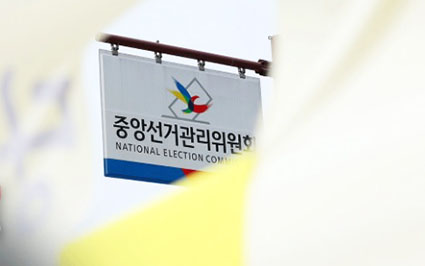by WorldTribune Staff, October 11, 2023
South Korea’s National Intelligence Service (NIS) has warned that North Korea could penetrate into the voting and ballot counting systems at the state-run election watchdog “at any time.”
 Hackers who infiltrate the systems would have the ability to manipulate registered voter information and ultimately the outcome of an election, the NIS said.
Hackers who infiltrate the systems would have the ability to manipulate registered voter information and ultimately the outcome of an election, the NIS said.
The outcome of the 2020 elections in South Korea, like those in the United States, was disputed, but the controversy was suppressed by major media outlets.
The NIS issued the warning in announcing the outcome of a joint cybersecurity checkup on the National Election Commission (NEC), Yonhap reported on Oct. 10.
The NIS and the Korea Internet and Security Agency conducted the cybersecurity checkup on the NEC between July and September amid criticism that the NEC was not doing enough to secure South Korea’s voting its systems against the hacking threat posed by the North.
The joint checkup found the NEC had “multiple cybersecurity vulnerabilities to hacking attempts in terms of the management of its voter register, ballot counting and early voting systems,” the report said.
The spy agency also said classified NEC documents were leaked in April 2021, as a North Korean hacking organization identified as “Kimsuky” used a malicious code to affect an internet PC at the election watchdog to steal information.
In June, South Korea imposed unilateral sanctions on Kimsuky, a unit within the Reconnaissance General Bureau, North Korea’s intelligence agency, in response to North Korea’s botched launch of a military spy satellite.
WorldTribune.com reported in May of 2020 that allegations of fraud in South Korean elections were seen as a warning on new voting technologies widely used in the U.S. elections later that year.
Particular attention was paid to “a new field of digital fraud involving vote counting machines, computer hardware and software, and Huawei information network telecommunications equipment,” Tara O noted in a May 8 analysis for East Asia Research Center.
South Korea’s National Election Commission (NEC) chose LG U+ 5G, which uses Huawei equipment, to provide Internet and WiFi for handling the pre-vote ballots.
The election process and outcome “did not inspire confidence among the voters, but raised questions about them, and this is the real problem,” Tara O wrote. “In that case, steps should be taken to restore the confidence, such as conducting an investigation of the election similar to that of the OAS model, recount the votes, and change the election law or procedures to address the gaps and flaws in the election process to be applied to future elections.”
Please Support Real Journalism
Hello! . . . . Intelligence . . . . Publish
